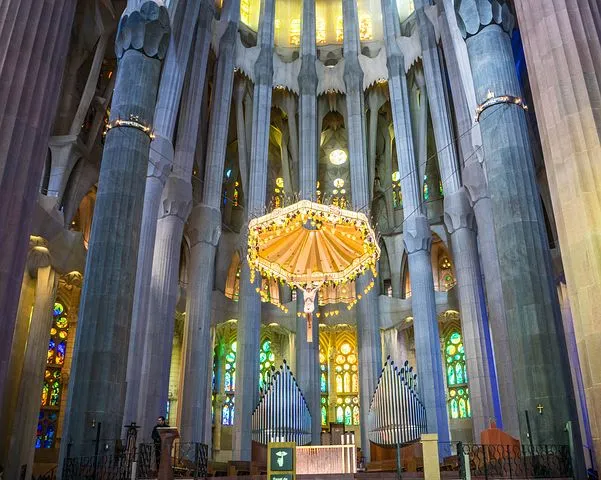Perhaps in a way unprecedented in earlier UN conferences, religion has functioned in this conference as a "problem." Religion, particularly Catholicism and Islam, have been seen in the popular press as against certain methods of population planning and control over reproduction, particularly abortion. But lurking under these confrontations there has been the assumption that religion is hostile to the emphasis on gender equality and the independent moral agency of women. Is this really a problem of religion as such?
I would like to suggest that this is not a problem of religion as such, but of a certain reading of religion as primarily an anti-modern or reactionary force vise a concept of modernity that is assumed to be essentially secular. What we have in the draft document on population and development is an effort to delineate a global policy on the population that assumes underlying ethical values, but without articulating these values and with no reference to religion as the base for most cultural ethical values.

www.pixabay.com
The effort to skirt religion has failed for the simple reason that in almost all cultures sexuality, fertility, and family matters are particularly entwined with religion. The United Nations, in trying to discuss these with a totally secular mindset, has ended up walking into a hornet's nest, and one with which it is ill-equipped to deal, except through various strategies of placation.
Why does the document try to ignore religion? Because it is assumed that religion is reactionary, irrational, and decisive. The Program of Action of the Conference on Population and Development does tip its hat several times to affirmations of respect for local cultures, including religions. But it offers no way of even recognizing, much less adjudicating, conflicts between values. For example, when principles of human rights, such as the right to bodily integrity or gender equity, conflict with religious traditions.

www.pixabay.com
Secular rationality is seen as a global language that can unite people all over the world and thus forge consensus. But secular rationality is itself a particular culture shared by a certain elite, but not by the masses of people for whom this document is particularly intended; i.e., those who need to be empowered to regulate their fertility, namely, poorer or non-elite women. What is overlooked in such a document is that one can hardly empower women if one is unable to connect with the religious cultures that inform them and their communities. One has to be able to delve into the deep symbols of these religious cultures and find the ways to read these symbols that empower women as moral agents if such a population plan is to have any effect. This is something the official culture of the United Nations, and agencies that share the mindset of secularity, are incapable of doing or of even comprehending.
To approach this problem we also need to be clear that the cultural conflict with which we are dealing here is not simply between religious discourse and secular discourse. It is actually a deep conflict within the religion itself. It is this conflict that is actually raging in Catholicism and other world religions and which has surfaced at this conference, but in a way that hides its own internal schisms. Quite simply, the major world religions: Judaism, Christianity, Islam, Hinduism, and Buddhism were shaped in the period of the consolidation of patriarchy. In various ways, these religions both sacralize patriarchal relations and represent various protests against them in the name of justice and harmony with the God of the cosmos.
This conflict is particularly deep in the three monotheistic religions, but here I will focus on the one I know best, namely Christianity. Christianity inherits from its parent religion Judaism a deep conflict between norms that sacralize patriarchal social order, as the will of God and the order of creation, and prophetic faith that protests against social patterns that oppress the poor, the widow, and the orphan. Christianity renewed this conflict, first positioning itself as a prophetic critique of both its parent religion and the larger world of imperial Rome. But it soon began to adapt to a new version of patriarchal and imperial social patterns with which it identified itself.
Through the centuries Christianity has gone through continual waves of renewal that have revived the prophetic protest tradition on behalf of the poor and marginalized of the world. Our own time represents a new version of such a wave of renewal in the forms of liberation and feminist theologies. For the first time, the protest tradition is being applied in a profound way to the marginalized, those who have never been seen as the primary subject of God's liberating action, namely women.

www.pixabay.com
The deep symbols of justice and protest against injustice in the faith -- the equality of all persons in God's image; the calling of all people into a new community of equals; God's transformative action overturns the power of the mighty and lifts up the lowly, action that makes the despised the particular agents of God's new redeemed people -- are themes being applied for the first time to women. If women are to be affirmed as images of God, we must be able to image God as women. It is women who are called into the community of equals, who are being empowered to be God's liberating agents as the mighty, the male elites, are put down from their thrones.
It is the rediscovery of the concrete, this-worldly meaning of these religious symbols of redemption, and their application to the poor and to women today that is shaking traditional Christianity to its roots, but is also offering a new chance to be truthful and salvific for our times. The refusal of this document by the Vatican is ultimately a refusal to dialogue with this challenge of renewal within its own community.
I would like to conclude with two points. First, the religious conflict with the Vatican cannot be understood unless it is put into this context of a conflict within Christianity itself between patriarchy and prophetic faith, now read in the context of women's liberation. And, second, the projected program of women's empowerment envisioned in this document as a key to population planning will fail if it is thought of as a secular project that needs to ignore or neutralize religion. It will only succeed if it is able to tap into the deep wellsprings of renewal of the human spirit represented by the union of prophetic faith and hopes for just and sustainable earth, where women, at last, come into their own as partners in the human enterprise.